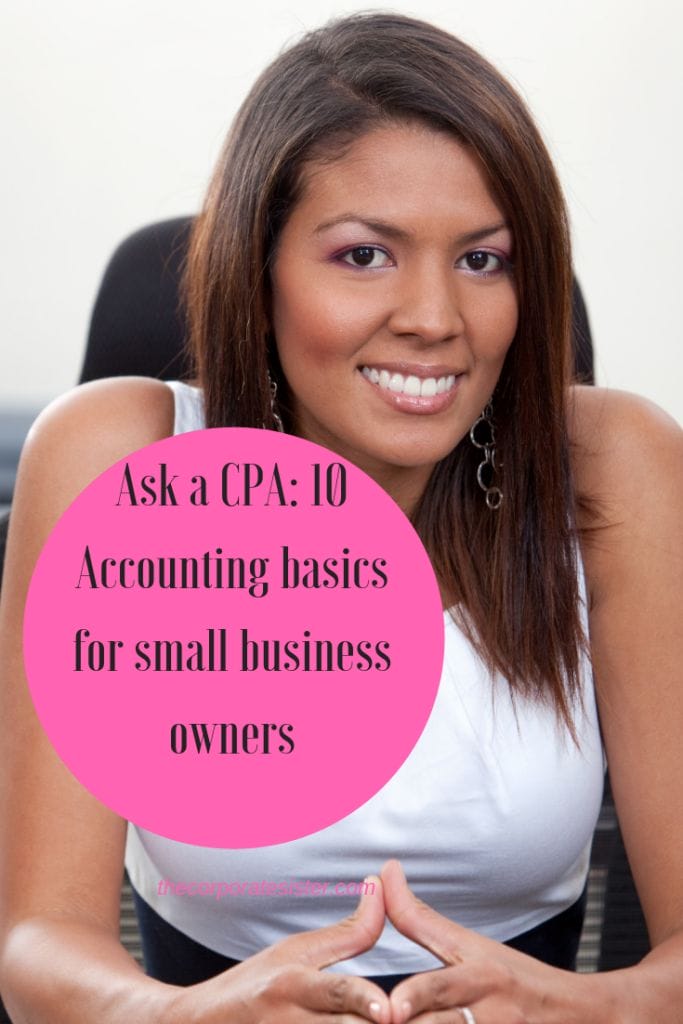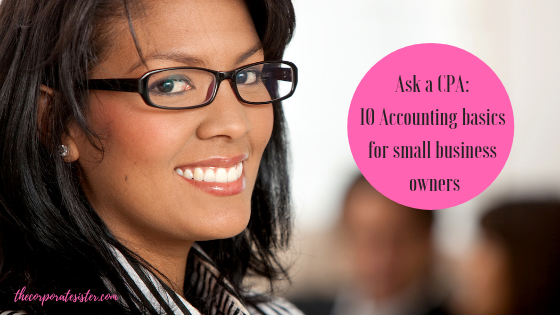From my many conversations with small business owners, I’ve realized that many fear the sheer thought of tackling the accounting part of our business. This is especially true for creatives who would rather devote their time to creating content than digging into the specifics of expense and revenue tracking.

However, the common misconception is that accounting is reserved for a select few, and the rest of the mere mortals are left powerless in its wake. As a result, many of us omit one of the most important parts of our businesses, that is the financial and accounting side. As a CPA and consultant, it’s a fear I hear and see in many of my clients.
With the advent of side hustles and solopreneurs, especially among working women, it’s becoming increasingly important to have a handle on our own accounting. Most small businesses are now being started by women, especially women of color, which reinforces the need to tackle our own financial needs. Even if you hire a professional, you still need to know what is being done in your business.
If you’re a small business owner, or thinking of becoming one, here are 10 accounting basics to keep in mind:
- Develop a business plan
One of the most overlooked parts of starting a business is developing a business plan. This is where you express your business strategy through a detailed plan that will inform your activities and general growth. A good place to get start is: www.sba.gov.
- Decide on your business structure
Whether you decide to run your business as a sole proprietorship, establish a Limited Liability Corporation (LLC), or a partnership, among other business structures, this will impact your tax status, as well as the way you conduct business.
- Open a bank account for your business
Distinguishing and separating your funds with that of the business is paramount. It helps you track the expenses and revenues of the business better, while also protecting your assets in the meantime.
- List your creditors
Taking care of the debts of your business is paramount as this will help you secure loans and show how solvable it is. Make sure to list all your creditors and keep track of your debts owed and the payments you’re making towards these.
- List your business assets
As a small business owner, knowing what you own in terms of assets is crucial. Not only can this help you value your business better in financial terms, but it will also allow you to keep track of the growth, or lack thereof, of your entity.
- Determine your discounts
How will your structure any discounts you give to customers? Considering how these discounts can impact your bottom line, you may want to decide earlier on on their structure and frequency.
- Choose your accounting method of choice
Will you be using the cash method of accounting, whereby you will recognize your revenues and expenses based on cash exchanged? Or will you accrue your expenses and revenues instead? Deciding on your method of accounting will allow you to manage your books better, and be more aware of the profits of your business.
- Decide if you’ll use an accounting software
Will you be using an accounting software or manually record your transactions? This decision will impact your entire accounting system, so you may want to spend some time reviewing the different options you may have. Accounting software like Quickbooks or Freshbooks are great ways to get started.
- Determine how you will enter your bills and revenues
Will you hire someone to record your bills and revenues? Will you do it yourself? How frequently will you do it? Will you be using an app to scan your receipts? These may sound like small business decisions, however they will greatly impact the accuracy and timeliness of your records, which in turn will affect your taxes and general growth.
- Picking the right accountant for you
Last but not least, picking the right accountant for you is a process to tackle carefully. Not everyone can serve as your business accountant, even if they have all the right degrees and credentials. Some questions to ask yourself when picking your business accountant include:
- Does this person understand my business?
- Does he/she get the strategy of my business?
- Is he/she qualified enough?
- Is he/she available to work on my business in a way that will serve me well?
As a small business owner, you want to make sure that you have an input into your finances and accounting. After all, it’s your business, and it’s up to you to steer it in the right direction. Even as you may seek help and hire accounting personnel, remember that your business is yours, and others are here to help you execute your vision.
The Corporate Sis.







